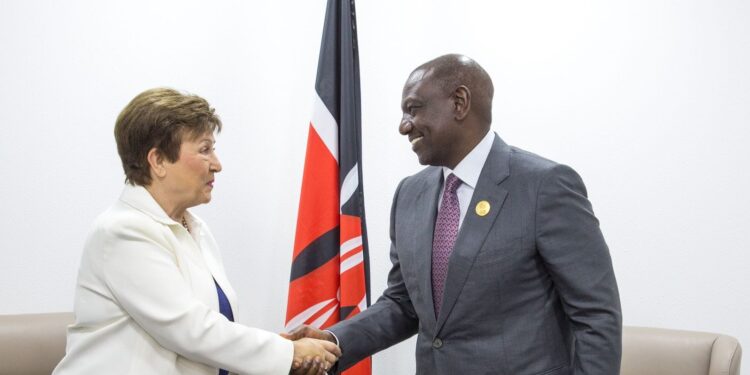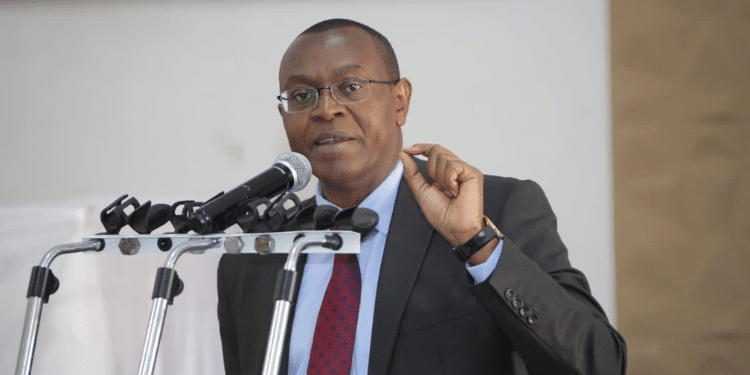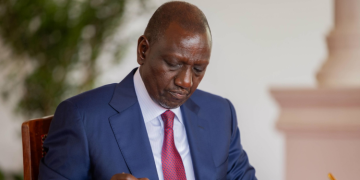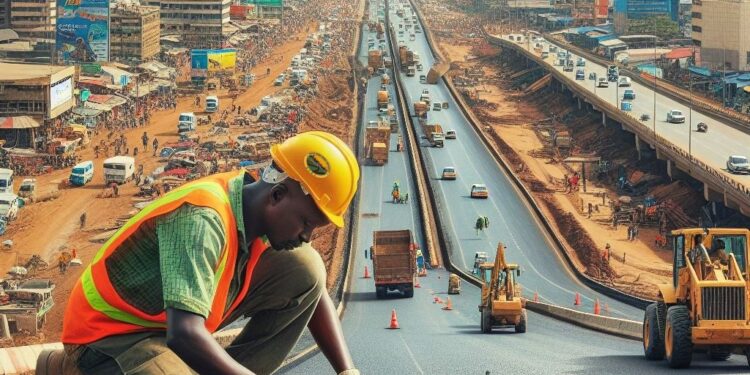A post by the Kenya Urban Roads Authority (KURA) on Tuesday, January 16, elicited reactions with Kenyans criticizing the parastatal for using an artificial intelligence (AI) image.
In the post shared at 20:01, KURA posted an image depicting ongoing roadworks in a virtual urban center and a message stating that it was committed to improving urban transport.
The image had several components including a depiction of a man at work, various road construction machineries, and even the typical human traffic in most urban centers by the roadside.
In the background, the image had the skyline of an apparent city appearing from a distant giving the impression of an African urban center.
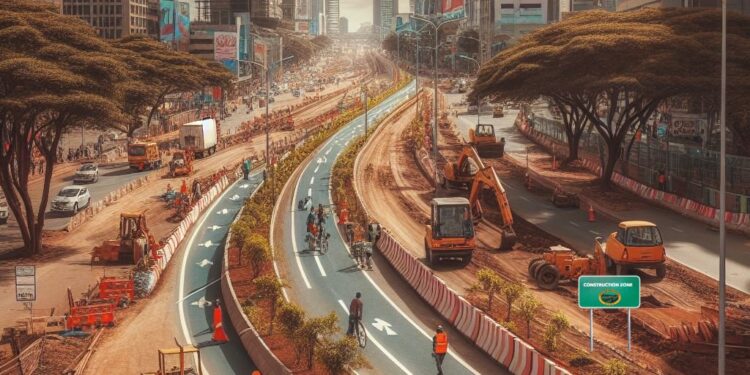
“We are working towards a seamless connectivity across all the forty-seven Counties through the Transformation of Urban Mobility,” KURA announced in a statement tagged to the Council of Governors.
Kenyans react to KURA advert
But Kenyans were quick to point out the nature of the image with some questioning the impact of switching to AI especially in light of the unemployment rates.
Gabriel Ogunda, an X user and popular blogger, urged the parastatal to consider the fate of homegrown graphic designers and other creatives in Kenya.
“When did the Ministry begin using AI tools for ads?” Ogunda said in the statement.
“Have mercy on our homegrown designers and other creatives in the advertising space. They also deserve to have a nice watch like you do. Thank you so much, big bro.”
Kachwanya, a tech and startups commentator also weighed in stating that the government had joined the private sector in replacing human labour with new technology.
“You (KURA) are using AI for the ads now, creatives cannot take a break, from the Private sector abandoning them for AI to people who are supposed to get them jobs, giving the jobs to computers,” the tech commentator posted.”
KURA leaves key components
However, some users noted some faults in the model urban road depicted in the image.
In the comments, the users questioned why the model showed dusted roads with no pedestrian walkways as would have been expected for a perfect urban mobility plan.
“The Ai image typifies a concrete jungle city with dusty roads and no pedestrian walkways and cycling spaces and lacking green spaces. Bad image to use for a professional road agency if you ask me,” a user pointed out.
Another said, “Even your AI to knows you don’t do anything for pedestrians… In a country where more than 50% walk.”
The KURA post represented a now rising trends where advertisers are shifting to Artificial Intelligence (AI) for designs and artwork.
Also Read: Safaricom’s Zuri Reveals Kenyans Peculiar Questions
The upshot of this has been concerns over the fate of jobs previously done by professional photographers, graphic designers- among others.
AI Impact on jobs analysed
But it is not just the creatives facing redundancy risk in the wake of AI and automation.
Jobs in the financial sector including clerical jobs and accountancy are gradually ceding to AI as well.
Banks and financial institutions are adopting a new generation of Artificial Intelligence-enabled technology (AI) to undertake financial tasks initially done by humans, according to The Conversation.
Also Read: AI Tops Trending Google Searches by Kenyans
According to an article by Niusha Shafiabady, a Professor from Charles Darwin University, developing countries are likely to feel more heat with impending AI takeover.
Whilst advanced use of AI, according to the professor, presents opportunities for creation of more jobs- Africa risks lagging behind.
As per the Professor, such countries have “both a higher occurrence of jobs that can be replaced or displaced and less of the money and skills needed to implement AI tools effectively.
“Experts note AI will create many employment opportunities, including jobs that don’t yet exist,” the Professor notes.
“It’s just that not all countries will be well-equipped to make the transition when the time comes.”
According to the International Monetary Fund, IMF, Artificial Intelligence could affect at least 40% of jobs.
IMF’s managing director Kristalina Georgieva said “in most scenarios, AI will likely worsen overall inequality”.
She added, ““We are on the brink of a technological revolution that could jumpstart productivity, boost global growth and raise incomes around the world. Yet it could also replace jobs and deepen inequality.”





